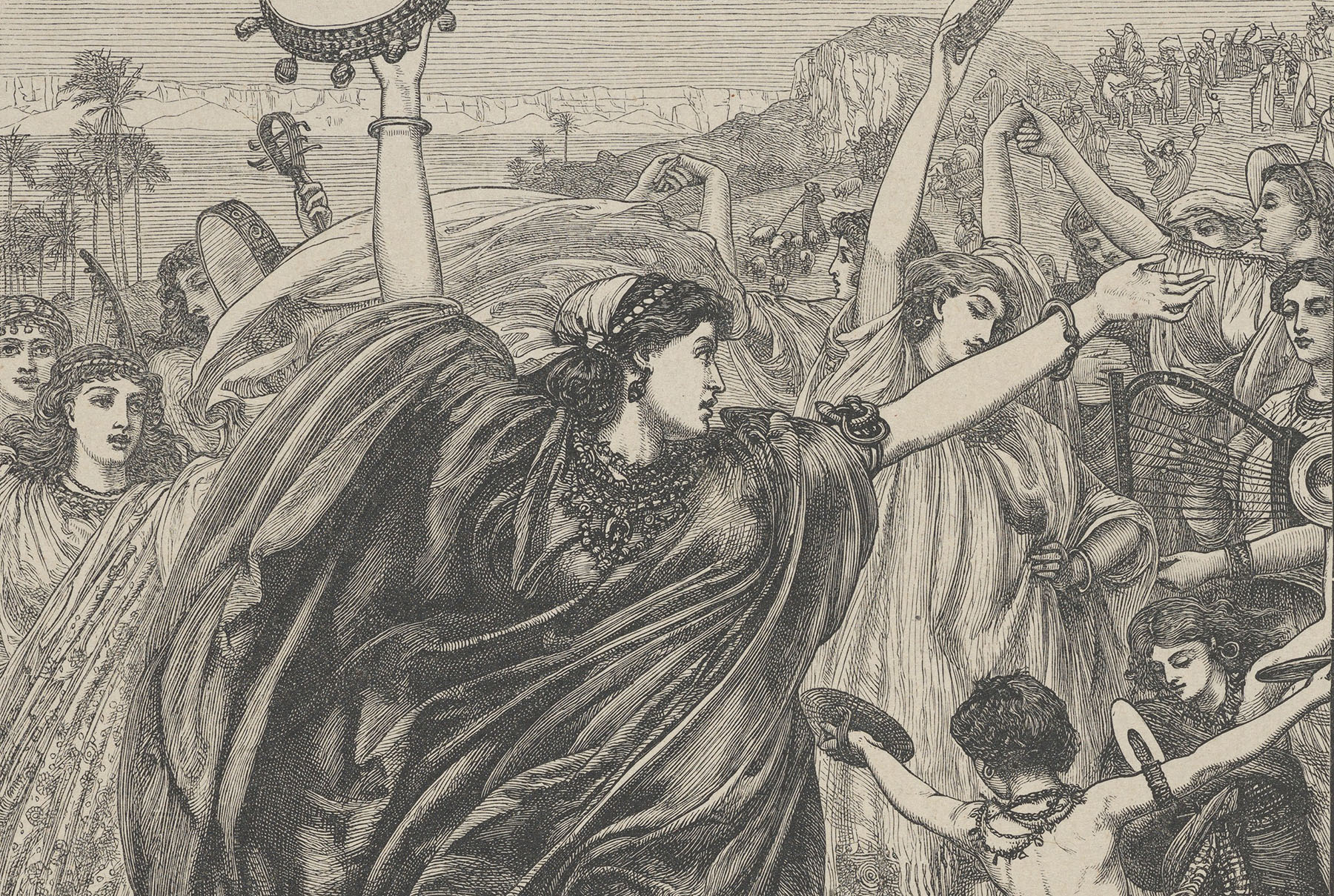
The Exodus is so central to our tradition that we remember it multiple times a day in our liturgy. The main characters, Moses, God and even Pharaoh, seem to generate male energy as the main focus of the story. But deeper look reveals that women are truly the heroes of the story. Their courage, acts of civil disobedience and abounding love assure our survival and bring our redemption.
Who are these women? Shifra and Puah, the midwives, Miriam, Moses’s sister, Yocheved, Moses’s mother, and Bityah, Pharaoh’s daughter (rabbis call her Batyah, daughter of God). Each woman faces the Egyptian leader and his heartless edict to kill Israelite baby boys. Through the text and Midrash, we learn of their impact on the Exodus story, particularly on the men who withdraw in the face of power. These women lead, refusing to succumb to defeat and demoralization. Let’s celebrate their legacy this month — from International Women’s Day to Passover.
Let’s celebrate their legacy this month — from International Women’s Day to Passover.
Midrash teaches that Amram, Miriam’s father, divorces his wife to prevent creating babies for Pharaoh to kill. The Israelite men follow his lead with the fate of Judaism diminished. But Miriam confronts her father by saying, “Pharaoh wants to kill all the male babies, but you are killing female babies as well.” Miriam’s confrontation shakes Amram to his core. He remarries his wife, and so do the rest of the men, restoring once again intimate relationships of these couples.
In another Midrash, the Jewish women, rejected by their husbands, go to the fields, bring food and beverage to feed their spouses, and in seductive fashion, use their mirrors to capture their glowing images to taunt their husbands into sexual pleasure. Pregnancies abound, and life is renewed.
As we read on, we discover two midwives, who are tasked with killing the baby boys upon their birth. The Torah identifies them as Shifrah and Puah (although the Talmud conjectures it could actually beYocheved and Miryam). We learn that Shifrah and Puah’s allegiance is not to Pharaoh but instead, as the Torah describes, “they feared God and did not do the deed.” In fact, they let the babies live and give them water and food so they will thrive.
Next, we meet Yocheved, the woman who is three months pregnant when the edict is given. When Moses is born, Yocheved hides him for three months and then creates a container described as an “ark,” puts Moses in it and sets him afloat down the Yam Suf, the very same river the Israelites will walk through on their way out of Egypt years later. Miryam follows the ark as Moses’s protector.
At this point, we meet the next woman who defies the King of Egypt and ensures Moses’s safety. Princess Bityah, daughter of Pharaoh, is standing by the river and cleansing herself when she notices the basket and asks to see what is inside. A baby boy, circumcised and covered in a Hebrew blanket, lays before her. Well aware of her father’s words, Bityah nonetheless is filled with compassion and embraces this little stranger as her own. Miryam comes forward, offering to find a wet-nurse for Moses. Bityah allows Moses to go home until he is weaned and then brings him back to the palace to be raised as a prince.
Each woman displays incredible courage, strength, fortitude and virtue. Their overwhelming love, compassion and commitment to life ensure our people’s future. The power of Shechinah, the feminine presence in the story, is matched only by the Song of Songs, the complementary reading for Passover that celebrates the love between man and women and, more symbolically, between God and the people.
In a time of such stress, anxiety and fear, we must embrace the courage and hope these women expressed and let our love and compassion guide the future.
Eva Robbins is a rabbi, cantor, artist and the author of “Spiritual Surgery: A Journey of Healing Mind, Body and Spirit.”
 RSS Feed
RSS Feed















 March 11th, 2021
March 11th, 2021  Awake Goy
Awake Goy  Posted in
Posted in  Tags:
Tags: 













